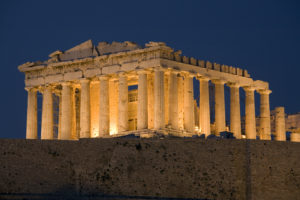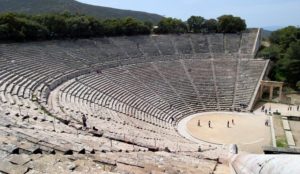The Public Broadcasting System is going to air the second of three documentary episodes this week that compels me to offer a brief comment.
“The Greeks” will be broadcast at 8 p.m. Tuesday on Panhandle PBS. It’s a collaborative effort by National Geographic and NOVA.
Part two of “The Greeks” is going to center on the “golden age” of that civilization. My interest in it, of course, comes from my own ethnic heritage.
I’m one of those rare Americans who can claim be of a single ethnic heritage. Both of my parents were first-generation Americans. Dad’s parents came to the United States from southern Greece; Mom’s parents were ethnic Greeks who came here from the island of Marmara in Turkey.
I’ve had the pleasure of visiting Greece three times, in 2000, 2001 and 2003. The first two trips were with my wife.
We visited many ancient sites during our trips to that magical place. One of them, quite naturally, was the Acropolis in the middle of Athens.
I hope this special will answer a question that has lingered in my mind since the first time I laid eyes on the Parthenon, the temple designed by Pericles during the golden age of the Athens city-state.
My question deals with the columns. If you see the Parthenon’s columns up close you are struck by tapering of the columns. They are wider at their base than they are at the top.
Thus, the question: How did the ancient Greeks create those tapered columns five centuries before the birth of Jesus Christ?
One of my uncles — my mother’s youngest brother — once lamented out loud that he was proud to be “descended from those geniuses.”
So am I.

